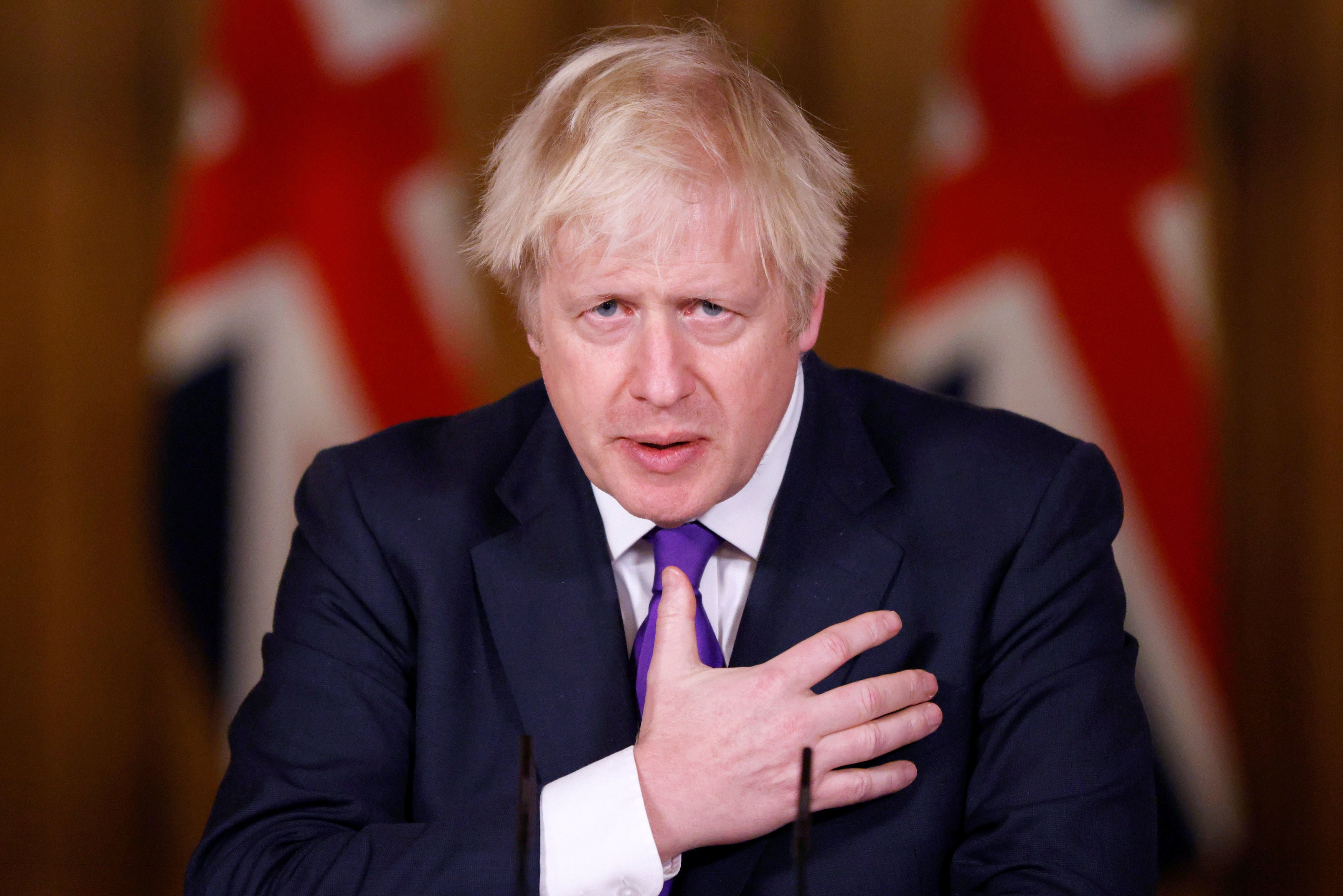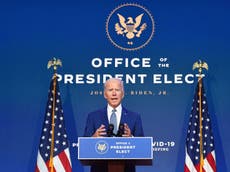Boris Johnson will have to raise his game to ensure climate targets are met
Editorial: The government must go full-throttle to meet emissions goals and drastically reduce production, consumption and the export of oil and gas

Boris Johnson’s new target for the UK to reduce carbon emissions by 68 per cent by 2030 based on 1990 levels is a very welcome move, and rightly more ambitious than the previous goal of a 57 per cent reduction.
The pledge to go faster than any other leading economy will enhance the prime minister’s credentials when he co-hosts a virtual climate ambition summit on 12 December, and in the run up to the critical Cop26 United Nations summit in Glasgow in November next year. After sending this powerful signal, Mr Johnson will undoubtedly have more leverage as he urges other countries, such as China and India, to follow the UK’s lead.
The person he hopes will soon be his new best friend, Joe Biden, will naturally approve. It is to be hoped that the president-elect and prime minister will form an important alliance in the months leading up to Cop26.
There is no dispute about the scale of the problem. The World Meteorological Organisation estimates that this year will be one of the three hottest on record, just behind 2016 and 2019. As Antonio Guterres, the UN secretary general, warned this week: “Our planet is broken.”
However, fixing it will require action as well as words. Setting a target does not guarantee it will be met. The 10-point plan for a green industrial revolution Mr Johnson unveiled last month, while also welcome, did not include enough specific pledges to meet the UK’s existing, and legally-binding, target to achieve net zero greenhouse gas emissions by 2050, which he will now urge more world leaders to copy.
In a timely report on Friday, the National Audit Office (NAO) spending watchdog warned that achieving net zero will be a “colossal challenge”. It noted that UK emissions are on course to exceed government targets for the years 2023 to 2027 and 2028 to 2032. Net zero by 2050 will require changes to the way electricity is generated, travel, land use and how buildings are heated, the NAO said.
Mr Johnson’s newly-donned green clothes are attractive but to be more than just a veneer, a genuine commitment to tackling climate change must run through the entire government like the letters on a stick of rock. There are doubts about whether the Treasury is signed up to Mr Johnson’s crusade. In last month’s spending review, Rishi Sunak committed a total of £127bn to the HS2 rail project and road building, which will both increase emissions, while allocating only £1bn to home insulation schemes that will cut them. The Treasury, which is reticent about disclosing a cost-benefit analysis of such spending, also smuggled out a £1bn reduction in rail improvement projects.
To ensure Mr Johnson's bold climate targets do not become a list of broken promises, the government will need to go further and faster. A plan to protect and restore peatlands is long overdue. So is an energy white paper, which was originally promised while Theresa May was prime minister and has missed more deadlines than the EU trade talks. The UK will need to reduce the production, consumption and export of oil and gas; Denmark has now pledged to phase out production by 2050.
The IPPR think tank calculates than an extra £30bn a year of public investment is needed to cut emissions and restore nature. Mr Sunak will not welcome that as he wonders how to balance the nation’s books in the medium term, but the issue cannot be wished away.
Mr Johnson must also ensure his government raises its game as we begin a critical 12 months. When he reshuffles his cabinet, he should appoint a new president of Cop26 who can focus on the vital summit in place of Alok Sharma, who has enough on his plate as business secretary and has not shown the strong leadership on climate change the country urgently needs.




Join our commenting forum
Join thought-provoking conversations, follow other Independent readers and see their replies
2Comments